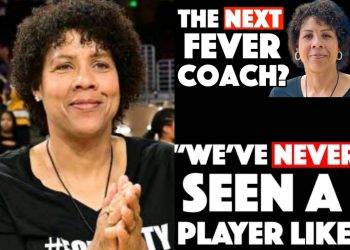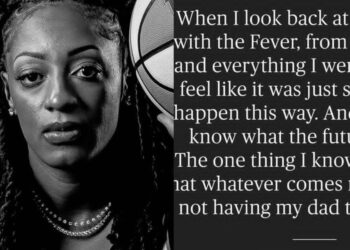In women’s college basketball, few programs command as much respect — and draw as much attention — as the University of Connecticut. Geno Auriemma’s Huskies are synonymous with dominance, producing stars like Diana Taurasi, Maya Moore, Breanna Stewart, and Paige Bueckers. For decades, the UConn pipeline has served as the express lane to stardom for elite female players. But Angel Reese is proof that you don’t need the Husky logo on your chest to become a household name. In fact, she’s built her icon status on her own terms, reshaping what it means to be a modern women’s basketball star.
When Reese chose to stay closer to home and play for Maryland, it was already a signal that she wouldn’t be following the “traditional” blueprint for greatness. She was the No. 2 recruit in the country in 2020 — the kind of player UConn usually lands — but family and familiarity mattered more. Her freshman year was interrupted by injury, but once healthy, Reese showed flashes of her dominance: a relentless rebounder, a ferocious defender, and an offensive force whose versatility made her a matchup nightmare.
Still, Maryland’s program, while strong, didn’t have the same gravitational pull as UConn’s machine. Reese’s transfer to LSU in 2022 turned out to be the real catalyst for her ascent into the mainstream. Under Kim Mulkey, Reese found not just a system that maximized her game but a platform that embraced her personality. The result? A breakout season that would change her life.
In her first year with LSU, Reese put up staggering numbers: double-doubles became routine, her physicality dominated the paint, and her swagger was impossible to ignore. But it was her fearless embrace of the spotlight — and the controversies that came with it — that truly elevated her. During LSU’s run to the 2023 national championship, Reese became a symbol of confidence and defiance, famously taunting Iowa’s Caitlin Clark with the “You can’t see me” gesture in the title game. Some pundits criticized her for it; Reese didn’t flinch. Instead, she leaned into it, calling out double standards and standing firm in her right to celebrate as loudly as any male player would.
That moment revealed Reese’s greatest strength: her authenticity. She’s unapologetically herself in a sport that has often tried to mold women’s basketball stars into polite, quiet ambassadors for the game. Reese, however, has no interest in toning herself down. Her brashness isn’t just for show — it’s her power. It resonates with a generation of young athletes who see themselves in her fearlessness to speak out, to talk trash, to play with emotion, and to profit from it too.
Indeed, Reese has also become an icon in the new era of NIL (Name, Image, and Likeness). Without the UConn platform, she has still amassed one of the biggest personal brands in college sports, signing endorsement deals with major companies like Reebok, Mercedes-Benz, and Amazon. She’s made the most of her off-court charisma, appearing on magazine covers, walking red carpets, and collaborating with fashion brands. She understands that in 2025, being a basketball icon isn’t just about your jump shot — it’s about your voice, your style, and how you move culture forward.
What’s remarkable is that Reese’s icon status isn’t built on some carefully manicured image curated by a blue-blood program’s PR machine. It’s organic, raw, and very much hers. She’s accessible and relatable in a way that some past stars, bound by old-school rules about how women “should act” in sports, weren’t allowed to be. Social media is her stage as much as the basketball court is. She claps back at critics, shares her triumphs and struggles openly, and uses her platform to advocate for herself and others.
Reese’s impact also transcends basketball. As a Black woman who’s leaned into her identity — nails, lashes, edges laid, unapologetically feminine and tough — she’s expanded the idea of what a women’s basketball star can look like. She’s inspired young girls who see themselves in her style and attitude, proving you can be glamorous, gritty, and great, all at once.
Of course, the UConn route still works — Paige Bueckers, Azzi Fudd, and the next wave of Huskies stars continue to shine under Auriemma’s legacy. But Angel Reese is a reminder that the game has changed. You don’t need the “traditional” powerhouse to make yourself a powerhouse. You don’t need the gatekeepers to say you belong. You can do it your way — and maybe, that’s the point.
By choosing her own path, playing her own style, and embracing her own voice, Angel Reese didn’t just become a star without UConn’s spotlight — she built one that might just shine even brighter. And in doing so, she’s given permission for the next generat
ion to do the same.











